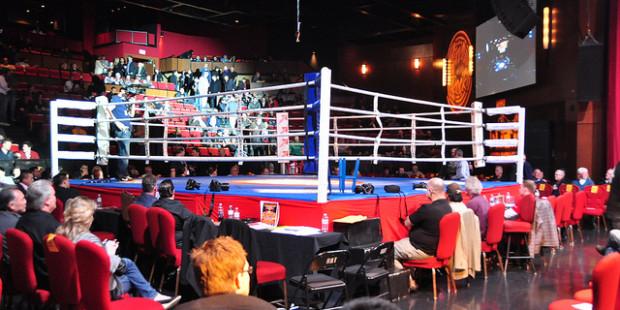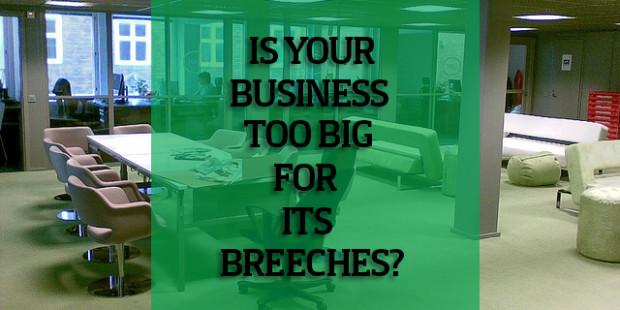Pole Barns, Quonset Huts & Steel Buildings: 3 Buildings Enter, 1 Building Leaves

Let’s get ready to rumble!!
Ladies and Gentlemen, welcome to the match of the century. Well, it sure feels that way considering you probably have this ‘boxing match’ going inside your head right about now. When you first make the decision to buy a building, you want it to be durable, cost efficient, and the best quality. Purchasing your first building is a huge milestone in your life, and it deserves to be treated as such. You have several options on what type of building to buy, so let’s take a look at the contenders.
Entering the ring, it’s the wood pole barn, quonset hut and pre-engineered steel building. Which will you choose?
ROUND 1
Take a look at all three building types as the bell rings. All occupy a space in today’s building landscape. Everyday, these types of buildings are bought, sold, lived in, and used. Remember, you want to get the most for your money. In Round one, we’ll look at cost.
Pole barns usually are cheaper upfront, which causes a lot of people to head that direction right away without looking at alternatives. If you plan on a small building, less than 40 feet wide, a pole barn is a fairly efficient building solution. But as soon as you go over a span of 40 feet, it starts to get expensive. The cost for the wood exponentially rises because it takes more material to shore up the walls and ceiling. I know it’s difficult to imagine right now and you might be tempted to go with a cheaper initial option, but you’re making a long-term investment. Pole barns generally aren’t considered permanent structures, and your land value could depreciate over time. That doesn’t sound much like an investment to me.
 Quonset huts are very sturdy and durable, and can be relatively inexpensive. Depending on the model of Quonset hut, you might not need a foundation. That was the beauty of this type of building. In the 1940’s, Quonset, or Nissan huts were utilized because the U.S. Navy needed a cheap, lightweight building that could be placed anywhere. After World War II, the surplus of military arch-framed buildings was sold to the public. Pre-engineered steel buildings are some of the most cost effective building solutions on the market today. These buildings usually cost less per square foot than buildings of conventional construction methods, like brick & mortar, or wood. A steel building might require more of an initial investment, but will significantly cost less over the lifetime of the building. Steel buildings are extremely durable and low maintenance, and come with a 50-year structural warranty. The same can’t be said of the other two building types. Plus, steel buildings are immune to warping, cracking and rotting, and don’t have parts that need to be replaced every few years. The steel building you buy once will be the steel building you use for decades.
Quonset huts are very sturdy and durable, and can be relatively inexpensive. Depending on the model of Quonset hut, you might not need a foundation. That was the beauty of this type of building. In the 1940’s, Quonset, or Nissan huts were utilized because the U.S. Navy needed a cheap, lightweight building that could be placed anywhere. After World War II, the surplus of military arch-framed buildings was sold to the public. Pre-engineered steel buildings are some of the most cost effective building solutions on the market today. These buildings usually cost less per square foot than buildings of conventional construction methods, like brick & mortar, or wood. A steel building might require more of an initial investment, but will significantly cost less over the lifetime of the building. Steel buildings are extremely durable and low maintenance, and come with a 50-year structural warranty. The same can’t be said of the other two building types. Plus, steel buildings are immune to warping, cracking and rotting, and don’t have parts that need to be replaced every few years. The steel building you buy once will be the steel building you use for decades.
I’m seeing some shaky legs, but nobody is hurting just yet.
ROUND 2
Obviously several factors affect the overall cost of any building project. How fast can each structure be built? The ability for a building to be erected quickly could save you a substantial amount of money. A pre-engineered steel building can be erected in days or weeks. That’s because all the components come pre-cut, pre-drilled and pre-welded. The parts bolt together and come to your job site ready to be erected. Quonset huts can also be erected relatively speedy. Constructions with wood might take even longer. Usually, a pole barn kit will arrive at a job site as raw lumber. The builder must take the time to fabricate the truss and cord bracings for the ceiling area. This can be especially time consuming if the barn is fairly large. Conventional wisdom says a pre-engineered steel building takes half the time of traditional construction methods, for about half the cost. Because of the ease of erection for a pre-engineered building, construction delays are significantly diminished, causing labor costs to fall as well.
One of the contenders is starting to feel it…
ROUND 3
You want a durable building capable of withstanding wind events, seismic activity, and heavy snow. Of the three types of buildings, a Quonset hut might be the best at enduring the forces of nature. It’s arch design can shed snow rapidly. High winds and rain encounter the building the same way, as arch buildings can withstand wind forces up to 170 mph. In fact, all steel buildings are specifically engineered to resist the intensity of a harsh winter, or strong winds. Engineers look at your location and talk with building permitting offices to ensure a building can survive any weather event that the area predictively produces. Pole barns are also engineered to support optimal wind and snow loads as well. However, pole barns don’t typically require a foundation, and a quonset hut might only need a floor frame. In a pole barn, Poles are thrust into the ground and support the ceiling, walls and trusses. Steel buildings are almost always anchored to a foundation.
Is one pulling ahead in your eyes?
ROUND 4
 Let’s talk about space. A steel building with a clear span rigid frame configuration utilizes all the space in the building, not just some of the space. Every inch of room is usable, from the ceiling to the floor. Want to store your tractor or airplane in a pre-engineered steel building? No problem. Steel buildings don’t require interior columns or internal poles to support the weight of the structure. Loads are transferred to the foundation through the ceiling and walls. Since Quonset huts are arched framed, the space in the ceiling is severely diminished. Today’s structural technology allows fabricators to make rigid frame buildings with the same load capacity and same ability to resist the forces of nature, while still allowing all the space to be used. Like I mentioned before, Pole barns simply have interior poles and bulky truss systems. If you want hay storage, or a place to stockpile your crops, you’ll have to navigate around interior columns or posts.
Let’s talk about space. A steel building with a clear span rigid frame configuration utilizes all the space in the building, not just some of the space. Every inch of room is usable, from the ceiling to the floor. Want to store your tractor or airplane in a pre-engineered steel building? No problem. Steel buildings don’t require interior columns or internal poles to support the weight of the structure. Loads are transferred to the foundation through the ceiling and walls. Since Quonset huts are arched framed, the space in the ceiling is severely diminished. Today’s structural technology allows fabricators to make rigid frame buildings with the same load capacity and same ability to resist the forces of nature, while still allowing all the space to be used. Like I mentioned before, Pole barns simply have interior poles and bulky truss systems. If you want hay storage, or a place to stockpile your crops, you’ll have to navigate around interior columns or posts.
I think we can call it. All these building types have earned a spot in the ring and fought a good fight, but a pre-engineered steel building is a clear knockout.
Photo courtesy: Peter Gordon
« Do You Want More Clients? Use This Insider Trade Secret
Is Your Church Making the Right First Impression? »
Popular Posts

It’s so easy for me to get caught up in tasks at work that I end up staying late at the office. By the time the weekend rolls around, I am ready to get on a jet plane to Riviera Maya and never come back. Most days of the month I keep a pretty good… …

How do you know when your business has outgrown its space? When is it time to start looking for a bigger office space? If Steel building prices are low, maybe you should build your own office. On the surface, it seems like it would be easy to tell when you require more space for your business,… …

